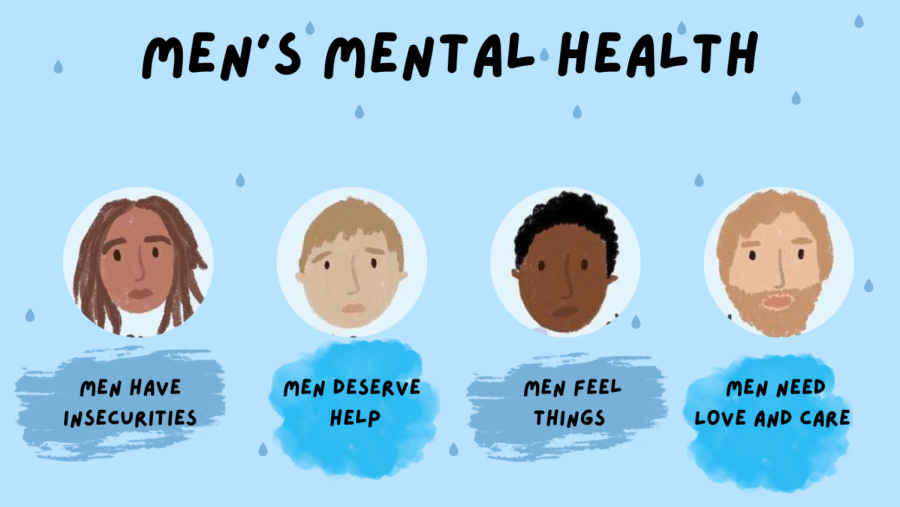The Importance of Men’s Mental Health
This picture demonstrates struggles that most females are open about and males are not, but they still struggle with these things.
The month of November is dedicated to raise awareness to men’s mental health. Even though most males tend to put up a strong face and choose not to share their emotions as much, they can still struggle. Sources suggest it is harder for a man to speak up about their mental health because social stigma can lead others to see it as a weakness. So November is a reminder that mental health problems especially in males are not a weakness and males deserve help as well.
Men’s mental health is something that is often swept under the rug and not taken seriously. The phrases ‘man up’ and ‘be a man’ are often used when males show their emotions or become more vulnerable. One of the reasons men’s mental health is so serious is because many of them feel as if they can’t speak up about their mental struggles because they can be seen as weak. Society has come up with this idea that men must be strong which cause most men to hide their emotions and this is just one reason that male suicide rates are higher.
According to the Newport Institute, “Male depression is one of the biggest mental health issues in men. CDC statistics show that 5.5 percent of young adult males suffer from depression. That’s about half the number of women of the same age. While men are less likely to receive depression diagnoses and also attempt suicide at lower rates than women, they are 3.7 times more likely to die by suicide. That’s because men who attempt suicide use more deadly methods, particularly firearms. In addition, since young adults attempt suicide at higher rates than any other age group, young men are at extremely high risk.”
Mental health in males can look different than it does in females. For women it is more common to experience anxiety, depression, eating, and mood disorders. While in males it is more common to experience high levels of depression, anger, and violence along with substance abuse, restlessness, and difficulty focusing.
Claimed by the Newport Institute, “…young men are struggling, and they are not getting the care they need. Because men often don’t seek help on their own and because their symptoms show up in less obvious ways, male mental health issues are under diagnosed. That leaves men with common mental health disorders feeling isolated and alone—and ultimately puts them at high risk of suicide attempts.”
It is often difficult to get help as a male because the signs of mental illnesses are less obvious, and there is more resistance when it comes to men speaking up about their feelings. Since it is harder for males to speak out, it can lead to isolation which ultimately leads to a higher risk of suicide in men. Since society sets a standard that men should be strong and less vulnerable, they often find it embarrassing or burdening to ask for help or talk to someone.
According to Maria Cohut, writer for Mental Health Today, “On a daily basis, many males find themselves grappling with prescriptive, antiquated ideas about gender — and this struggle can contribute to their mental health issues.It also explains why so many males have a difficult time admitting that they need help and pursuing it.”
Coping with mental health can often look different in males than it does in females. The most common occurrence in males is avoidance, dark humor, and going to the gym or exercising to get through their mental challenges. It is common for males to not share their feelings when they are struggling.
According to Mind Shift Psychological Services, “Discussing their mental health issues with other people is an uncharted territory where they are clueless on how and why they have to do it. However, this stigma among men should be changed. Their mental health should be held in high regard and should be discussed openly without shame and judgment.”
It might not seem like it but a lot of people especially males deal with their struggles silently. So remember to check up on your male friends and family, their mental health is just as important.






